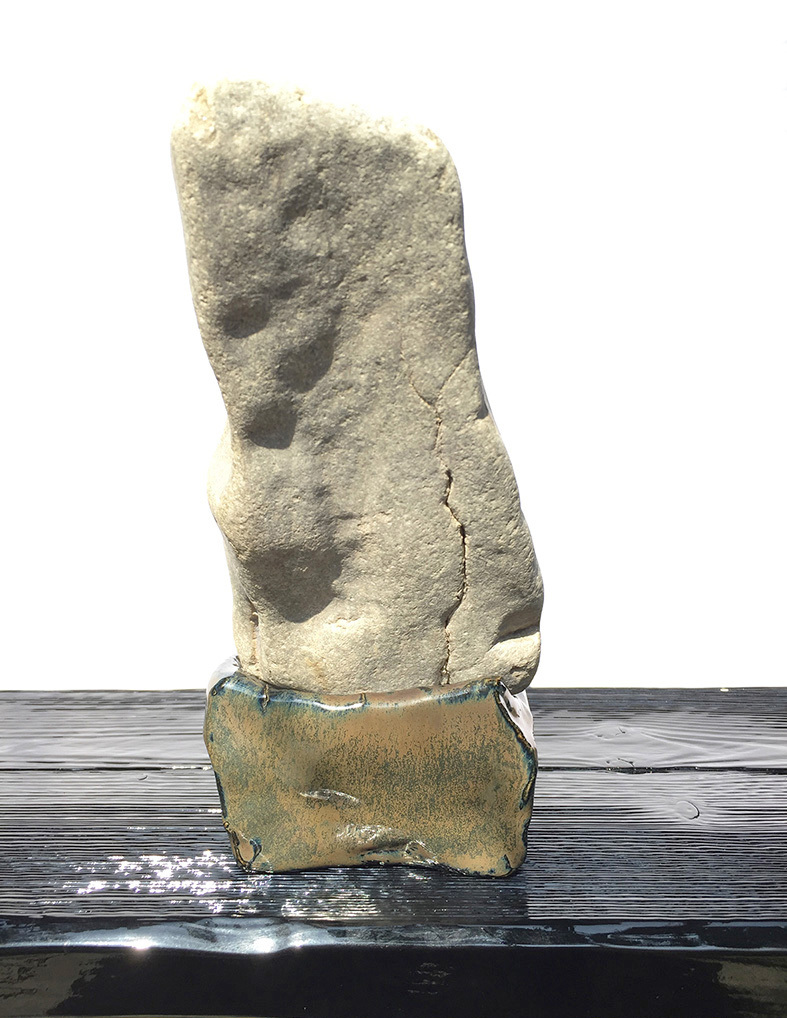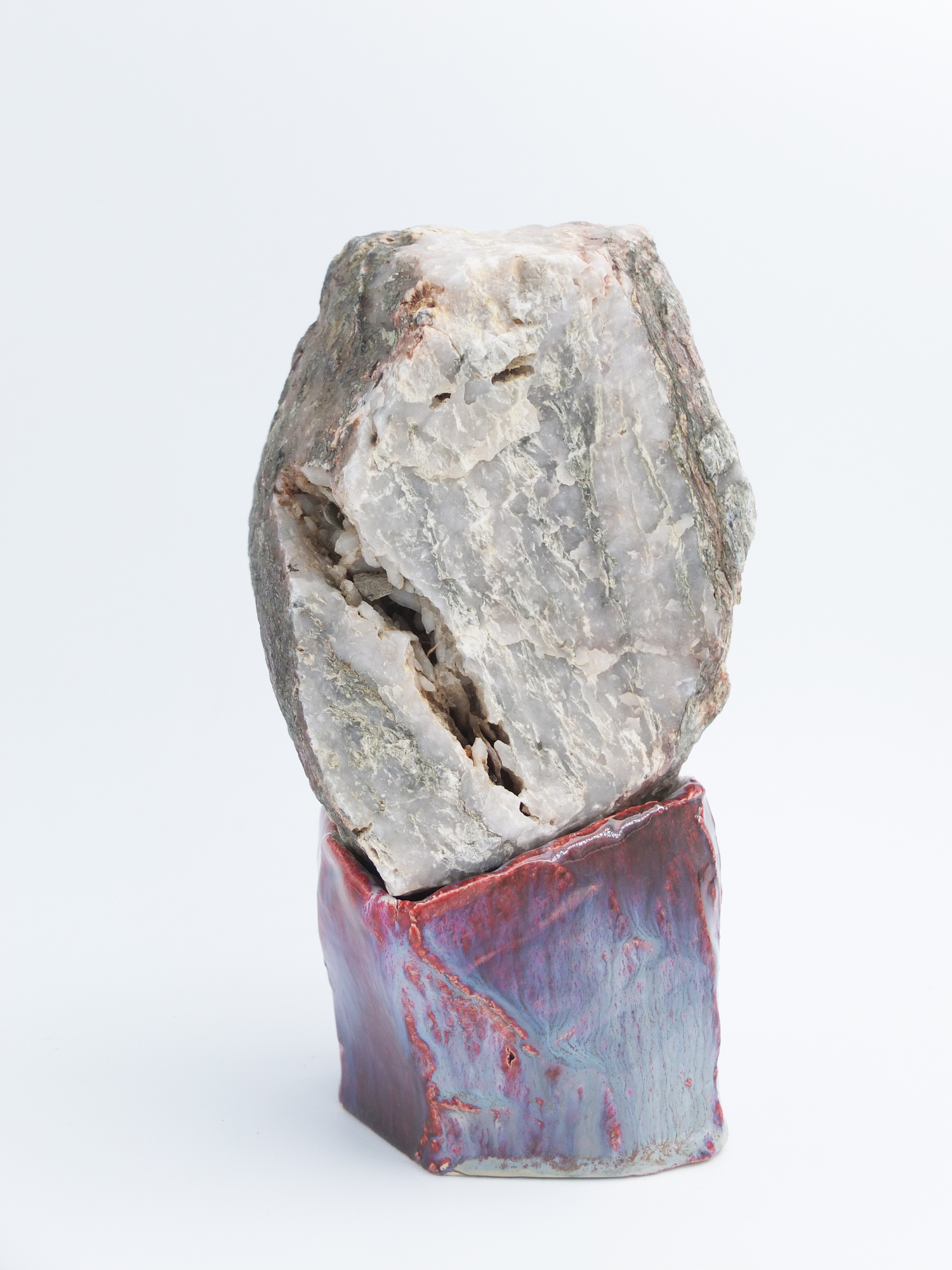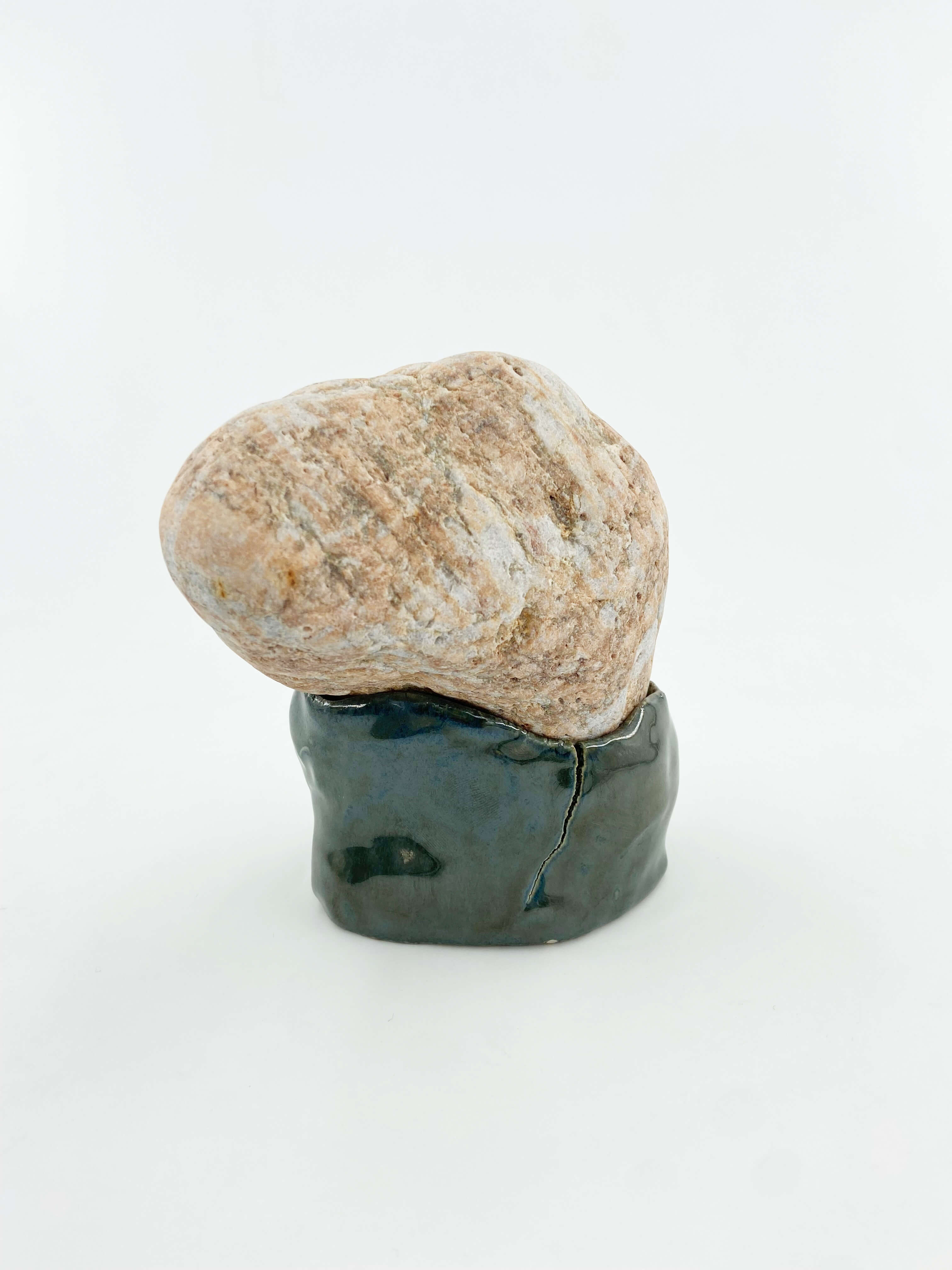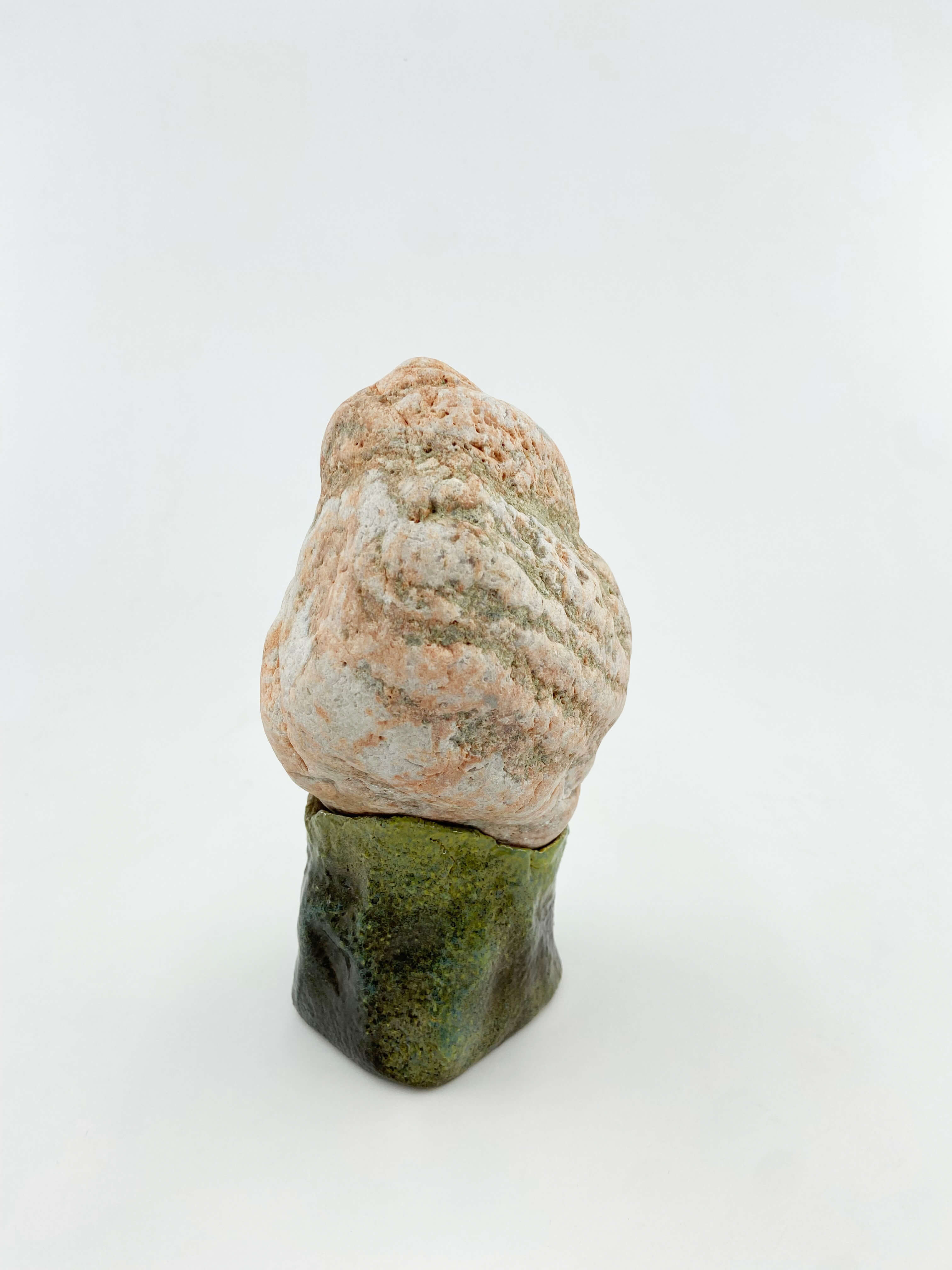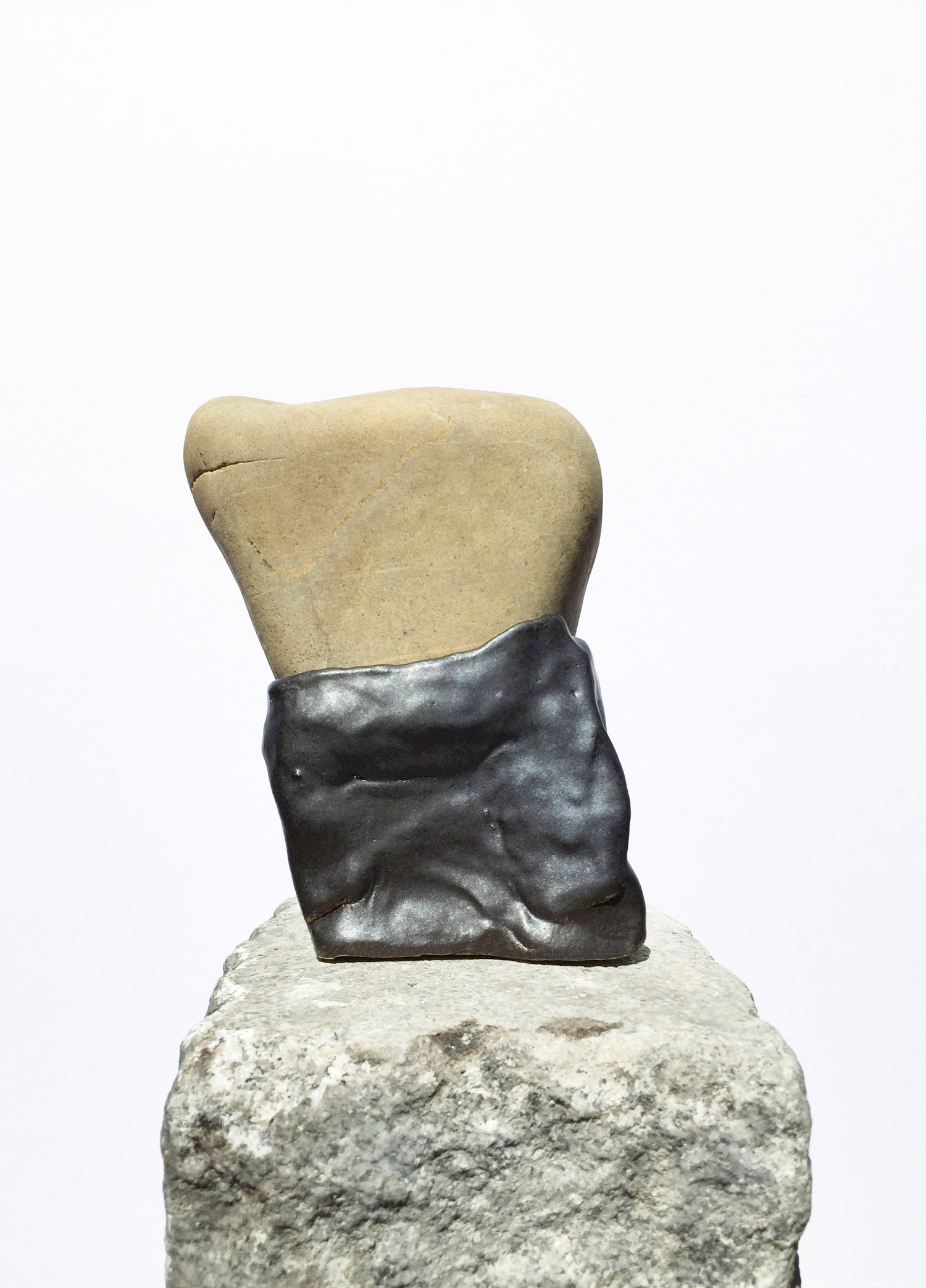

Suiseki, in Japan, has referred since the 6th century to the art of contemplating stones chosen for their natural beauty. Inherited from Chinese tradition, they were integrated into Zen gardens as fragments of landscape, capable of evoking mountains, valleys, or entire horizons.
In this lineage, I collect elements from their environment — stones, wood, or mineral fragments — letting myself be guided by their natural forms. My gesture does not consist in imposing an image, but in revealing what is already there, taking into account the weight, the size, and the specific context of each element. The addition of a ceramic base highlights the singularity of the stone, its mass and presence, like a setting that makes it resonate.
The materials I choose, whether vegetal or mineral, carry within them a memory of time. Nothing is fixed: growth, erosion, and transformation all testify to the permanent dynamics of matter. By accompanying these forces, I inscribe my works within an organic and universal continuity, where sculpture is not the domination of form but the discreet revelation of the natural laws that traverse each fragment of the world.

